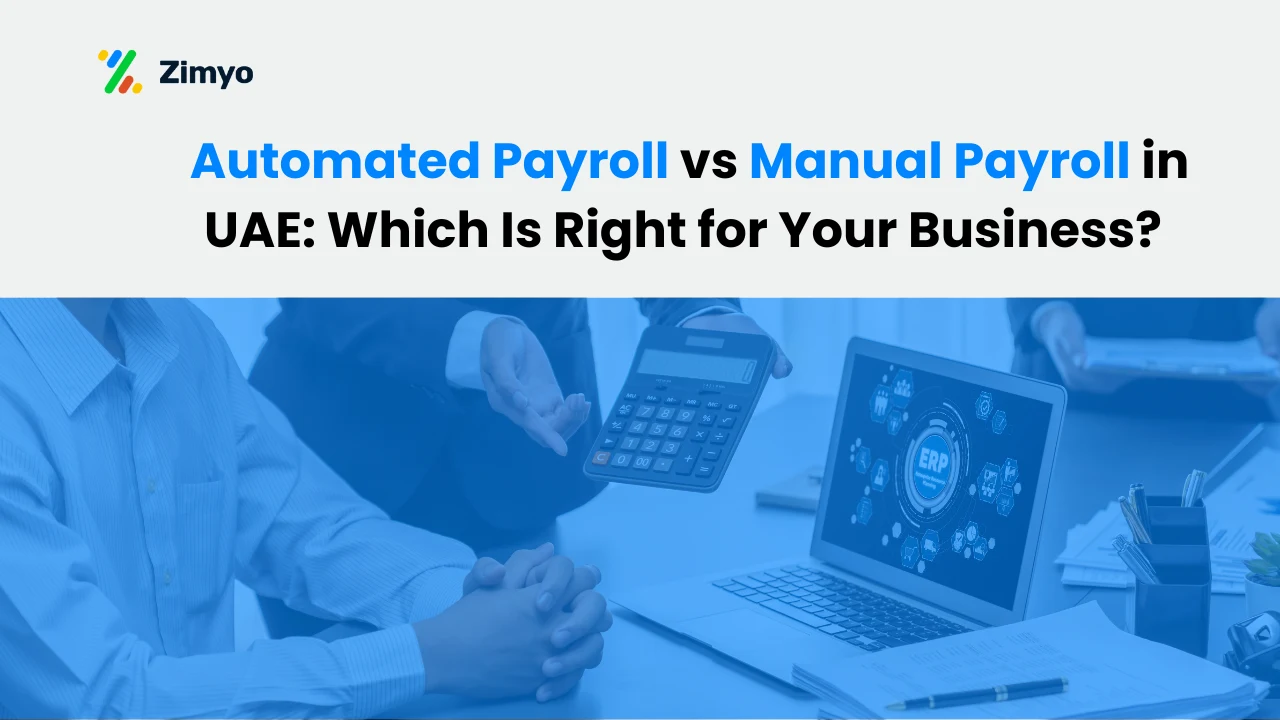It may be challenging for companies, especially modern ones to the UAE, to explore the complexities of payroll in UAE. With expanding emphasis on transparency, decency, and efficiency in labor practices, UAE labor laws implement strict compliance on finance handling. Whether you’re a startup company, SME, or multinational firm doing business in the Emirates, it is basic to understand and apply statutory HR payroll requirements for compliance with the law as well as to win the believe of employees.
Compliance with proper payroll guarantees timely salaries payments, decreases disagreements, avoids fines, and energizes employees’ fulfillment. But how can a company really become compliant?
How to Be Compliant with Payroll in UAE
To remain completely compliant with payroll in UAE, managers need to have a planned and regulation-compliant payroll handle. Here’s a step-by-step guide:
- Know Local Labour Laws: Keeping yourself updated is essential. Stay ahead with the UAE Labor laws.
- Employ an UAE Complaint Payroll System: Purchase payroll software that has UAE-specific functionalities such as the Wages Protection System (WPS), calculation of gratuity, and bilingual contracts.
- Implement WPS Registration: This is obligatory. Employers have to remunerate employees through the WPS in order to be legally compliant.
- Maintain Correct Records: Keep payroll records, contracts, timesheets, and leave records for every employee.
- Regularly Update Employment Contracts: Keep all employment contracts updated with new legislation and duly signed.
- Make On-Time Payments: Payment of salaries are on time according to the contract, and delayed payments can cause MOHRE blacklisting.
- Regularly Audit Payroll Practices: Regular internal audits to detect discrepancies and confirm adherence to the most recent rules.
Now that we’ve discussed how to remain compliant, let’s proceed to the detailed statutory compliance checklist for payroll in UAE.
Checklist for Compliance of Payroll in UAE
1. Employment Contracts
Each worker in the UAE needs to have a written work contract detailing the conditions and terms of work. Ensuring that contracts are agreeing to the UAE Labour Law, such as counting salary, leave allowance, and termination clauses, is vital. Not issuing a compliant employment contract may result in strong fines and legal problems.
2. Components of Salary and Payslips
Employees get to receive detailed payslips with the following:
- Basic salary
- Allowances (for example, housing, transport, education)
- Overtime payments
- Deductions (for example, pension schemes, fines)
This leads to Net salary
Payslips should be concise, detailed, and readily accessible to employees. A large number of UAE companies are shifting towards digital payslip as a matter of convenience and environmental sustainability.
3. Wages Protection System (WPS)
WPS is an e-salary transfer scheme required by the UAE government for the payment of wages to workers on time and in full. Employers are required to:
- Enroll with a registered WPS service provider (bank or financial institution).
- File monthly Salary Information Files (SIF) with the Ministry of Human Resources and Emiratisation (MOHRE).
- Make electronic transfer of salaries into employees’ bank accounts within the prescribed timeframe.
- Failure to comply with WPS regulations may attract penalties and business operation restrictions.
4. End-of-Service Benefits (Gratuity)
On termination, staff members have a right to end-of-service benefit, popularly referred to as gratuity. The formula uses the period of service and last basic drawn salary:
Up to five years: 21 days’ basic salary for each year of service.
Over five years: 30 days’ basic salary per year over five years.
Gratuity is computed at the basic salary of the employee upon termination of service, omitting allowances and bonus. Overall can use Gratuity Calculator to calculate the gratuity.
5. Social Security Contributions
Social security contributions are compulsory for UAE nationals and a few GCC nationals. The commitments are managed by the General Pension and Social Security Authority (GPSSA). For UAE nationals:
- Employer pays 12.5% of the employee’s salary.
- Employee pays 5% of his/her salary.
In Abu Dhabi, the employer’s contribution is 15%, while the employee’s contribution is 5%. Employers are to withhold and remit these contributions to the GPSSA.
6. Overtime Laws
UAE Labour Law mandates terms and conditions for overtime:
- Overtime rate is calculated on a scale of 125% for overtime on regular working days.
- Overtime rate is computed on a scale of 150% for working on public holidays.
Employers should make sure that payroll systems are capable of calculating and reporting these extra payments accurately.
7. Annual Leave and Holiday Pay
Annual leave and holiday pay are entitled to employees under UAE Labour Law:
The duration of annual leave varies according to the length of employment, beginning with two days a month in the first year and increasing to 30 days for employees who have served a full year.
Employers should record and pay for annual leave and public holidays precisely.
8. Maternity and Paternity Leave

The UAE Labour Law makes provisions for paternity and maternity leave in UAE:
- Female workers are eligible for 60 days of maternity leave, 45 days of which are fully paid, and the remaining 15 days half-pay.
- This is a correct and accurate version of the translation.
- Paternity leave is granted to male workers, though the length of time and remuneration will depend on corporate policies.
Businesses are responsible for ensuring that payroll systems will support these entitlements to take leave and fulfill legal obligations.
9. Maintenance of Payroll Records
Businesses should keep proper and current records of payroll transactions for the following:
- Employee identification
- Salary information
- Payment dates
These documents are critical for financial and HR auditing and for demonstrating compliance with local regulations. The payroll records of employers should be retained for two years at least and be made available for inspection by the MOHRE or other applicable authorities on request.
10. Leave and Attendance Management
Careful monitoring of employee leave and attendance is paramount for payroll compliance. Employers ought to have systems in place for monitoring:
- Annual leave
- Sick leave
- Unpaid leave E Concept
- Public holidays
11. Termination & Final Settlement
Upon an employee’s departure, employers are required to:
- Compute final salary
- Cover gratuity, leave, and other benefits
- Issue end-of-service certificate
- Clear dues within 14 days from termination
Efficient handling here results in a clean exit and adherence to laws.
Integration with Payroll Software in UAE
It is strongly recommended to use automated, UAE-approved payroll software. Popular software like Zimyo is known for:
- WPS file automation
- Payslips generation
- Gratuity calculation
- Leave balance management
- Electronic audit trails maintenance
This saves time, eliminates manual error, and maintains compliance with changing labor legislation.
Inspections & Penalties for Non-Compliance
The UAE government audits on a regular basis. Non-compliance with payroll in UAE rules may lead to:
- Fines of AED 1,000 or more per employee
- Work permits suspension
- Business bans or legal action
Therefore, companies need to actively follow all payroll rules.
Conclusion
Overall, being compliant with payroll in UAE involves a good grasp of labor laws, timely wage payments through WPS, careful record-keeping, and active policy enforcement. From creating legally compliant contracts to computing gratuity and keeping payslips transparent — every step matters.
By following this HR statutory compliance checklist, businesses can avoid risk, increase staff confidence, and earn a reputation for good business ethics in the UAE. Furthermore, implementing the proper payroll software not only simplifies administrative workload but guarantees long-term compliance.
Whether you’re an expanding startup or an established business, getting payroll right in UAE is not merely a legal requirement but a building block of long-term business success.
Frequently Asked Questions (FAQs)
Statutory compliance in payroll means following all government-set legal requirements for employee compensation. In the UAE, it involves compliance with the Wages Protection System (WPS), proper salary record keeping, and meeting gratuity, leave, and social security contribution requirements.
HR policies in the UAE are the regulations and practices companies need to adhere to in accordance with UAE labor law. They include the policies of employment contracts, working time, leave entitlement, payment of salary, maternity/paternity pay, termination, and welfare of employees. They help ensure that companies conduct business in a reasonable and lawful manner while safeguarding the rights of employees.
Statutory compliance checklist is an organized list of all the legal payroll and HR requirements an employer has to fulfill. In the UAE, these include WPS registration, on-time salary transfers, issuing compliant contracts, gratuity calculation, keeping payroll records, and processing leave and end-of-service settlements properly.
Statutory compliance in HR salary administration refers to conducting all salary procedures such as payments, deductions, and documentation in line with UAE labor laws. Examples include timely salary payments through WPS, accurate calculation of overtime, allowances, and deductions, and delivery of transparent, detailed payslips.











